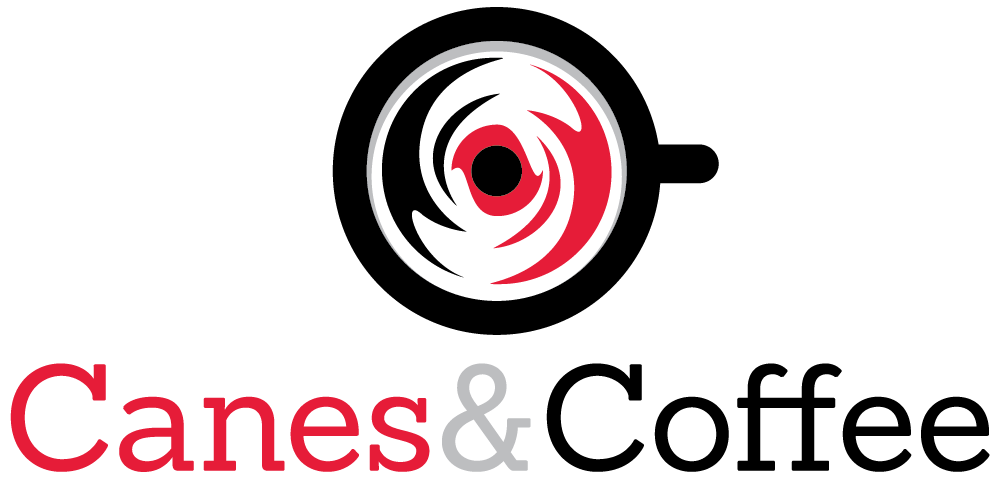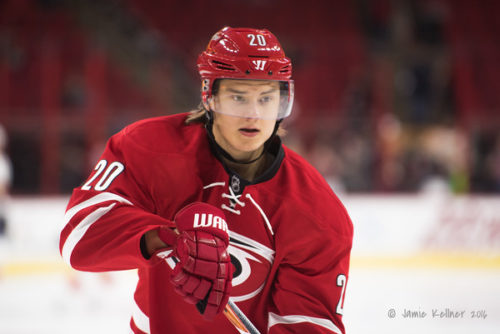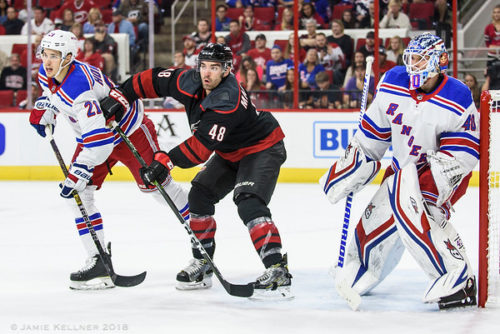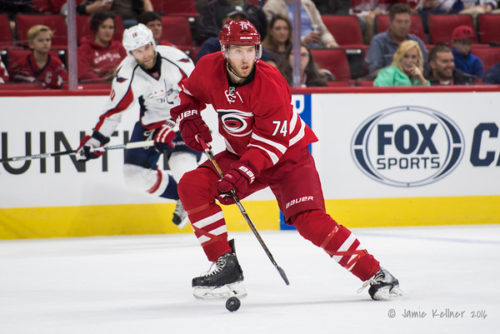Quick reminder about our ongoing holiday sale/fundraiser. Donations of any size are greatly appreciated but $18.75 in North Carolina and $17.50 outside North Carolina also nets you a really cool Canes and Coffee cup.
It’s as simple as making a credit card or PayPal contribution by clicking on the PayPal link HERE and being sure to include your mailing address if you order a coffee cup.
With the NHL Board of Governors meeting this week, timing was right for a potential follow through on the recent news that a new suitor had emerged in the ongoing saga of the Hurricanes sale. And sure enough, at lunchtime courtesy of Pierre Lebrun and Frank Seravalli from TSN, the deal was confirmed and details started to emerge.
As seems to always be the case when big news like a trade or something like this happens, it of course hit in the middle of a hectic day that did not afford me the chance to just sit down and sort through everything. As such, once I get time to digest the information and catch up on the details, I will write a more detailed assessment of the situation.
But while the information is timely, Friday’s Daily Cup of Joe will offer my initial thoughts.
Above all else — good news
Over the coming days, I will invariably dissect this deal from a thousand angles. Many will be positive. A few might lean negative. But at the top level, Tom Dundon’s deal to buy the team is a huge positive on many fronts.
First and foremost, I think the franchise, the fan base and the local community very much needs to move forward into the next era of Hurricanes hockey. Over time, the limbo of the ownership situation had become a growing cloud over the team stirring up intermittent relocation rumors that regularly rubbed salt in the wounds of long-time fans, and I think played some role in those who are not engaged right now to just continue to stay away.
By my account, the positive of just starting anew and looking forward cannot be overstated right now.
A seven-year commitment beats the minimum three
The deal supposedly comes with a standard commitment that no relocation request can be made for seven years.
A couple people today asked me if the seven years was a negative. Quite the opposite actually. Fans seem to want some kind of forever guarantee that the Hurricanes stay in Raleigh. In a professional sports world that has seen teams move from Los Angeles, New York and other places, there is no such thing as a forever guarantee. Teams must at some point hold their own or otherwise be subject to the whims of management changes, league maneuvering and a quest for financial viability.
Prior to reading about the seven-year guarantee, my math had long had the guarantee pegged about 3-4 years. My reasoning went like this…
1) The sale of the 32nd franchise still has a permanent hold on any relocation
Lost in various relocation rumblings is lack of understanding of what the NHL is up to right now. When the NHL reorganized the conferences into 16 teams in the Eastern Conference and only 14 teams in the Western Conference, it more or less spelled out the path forward. The league would sell two franchises in the west to add two collect about $1 billion to be split among current owners, add two more big US television markets as part of the ongoing quest to improve the prospects for all-important national television contracts going forward and in the process rebalance the two divisions.
Anyone who thought that the NHL would allow someone to buy and move a team at the same time they were trying to sell a team did not understand the situation.
Minus the purchase agreement deal announced today, the news this week that Seattle sorted out its arena situation and would be applying to be the 32nd franchise would actually have me a bit nervous. Only after the 32nd team is sold and probably launched does the window at least potentially open for relocation possibilities.
So that math says that the earliest is team like the Hurricanes could be sold and moved is about three years out to maybe 2020 or 2021.
2) The Hurricanes’ arena deal
The Carolina Hurricanes’ arena lease deal runs through the 2023-24. Specifics are not public information, but it is usually quite expensive to walk away from these deals since it is not possible to just replace 41+ nights of use. And usually the buy out/cancellation clause is some percent of what is left on the deal. So while it is legally possible that the Hurricanes could leave Centennial Authority high and dry, that possibility is likely cost-prohibitive enough that it is not a viable option short-term. Because of the limited supply of professional sports franchises, a year or two of even exorbitant cancellation and other fees can sometimes be absorbed as part of the deal, but it seems unlikely that the Hurricanes would vacate PNC Arena more than a year or two early because of costs.
So that math says that if you allow for eating some cancellation cost for a year two that a potential move would still be pushed out to at least 2021 or 2022.
3) New ownership giving it a go
Even if timing is not horrible in terms of arena deals and other big ticket financial items, it is expensive and difficult to move a professional sports franchise. As such, unless a new owner had geography-focused goals from the outset, it only makes sense that he/she would first give Raleigh a go. Between the team being out of the playoffs for eight years and the potential for new ownership to make changes on the business side, one would figure that a new owner would give Raleigh at least two full seasons with his/her changes and improvements before assessing the long-term viability of the market.
So that math says that the earliest a new owner might have collected enough information to decide that the market was not viable would be about 2020.
4) Netting out any kind of earliest possible relocation schedule pre-deal
When one nets it out, the combination of the NHL’s expansion project, the Hurricanes’ arena deal and the time for a new owner to settle in and assess the situation would all take somewhere between three and five years to run their course.
My personal math has always said that the NHL would not let a team move for at least three years, that a new owner would be on a similar evaluation schedule and that the arena deal might stretch things another year or two longer.
So for me, a guarantee of seven years is two to four more years than I ever counted on. Further, I think it is plenty of time to reestablish Raleigh as the financially viable NHL hockey market that it was only six or seven years ago.
And if the team goes seven more years and cannot do better than league worst in attendance, there are no promises from Gary Bettman that are going to indefinitely keep the team anchored here.
Tom Dundon vs. Chuck Greenberg
First, to be clear, I am just starting to learn about Tom Dundon, and I am not in a position to judge him personally as a person, a businessman, a sports franchise owner or anything else. But at a conceptual level, I really liked the resume of Chuck Greenberg. Greenberg was not the usual great and successful businessman who enters with zero experience owning/running a professional sports franchise. Rather, he has a history and experience in the sports industry. And even more so than his experience at the highest levels, I think his experience buying and then growing minor league franchises is even more valuable. For minor league baseball, very few people who attend games have any idea who the players are or even where the team is in the standings. The sale is very much a casual sports entertainment sale. If people go, have fun, enjoy the atmosphere and feel like they are getting good entertainment value for their money they will return. If I could inject one thing into the management of the team on the business side, it would be exactly this. When the Hurricanes won the Stanley Cup, the team shifted away from its roots in the community and also selling simple fun. The marketing shifted (too much in my opinion) toward selling hockey success, hockey stars, hockey playoffs and all things hockey. There is nothing wrong with selling those things, it is just that especially when those things are not going so well, there is a need in this market to also be able to sell and a more general entertainment product that has value regardless of where the team is in the standings. So finally getting to the point, I think Chuck Greenberg was exactly the type of person needed to rebalance the team’s positioning in the market as an entertainment product that has more value to casual fans regardless of a check on the standings. While it is completely possible that Tom Dundon also figures this out, I feel like Greenberg’s experience might have made this a more natural and rapid transition for him and whatever team he lead.
Peter Karmanos’ ongoing involvement
I should start by saying that I am forever grateful to Peter Karmanos for bringing NHL hockey to Raleigh. But I think we have reached the point where everyone realizes that it is time for an ownership transition and a new era if you will.
The report that Karmanos would allegedly maintain 48 percent of the team was the single thing that diverged from what I envisioned as the best path forward. Had Karmanos kept a modest percentage, maybe as high as 20 percent, I would have interpreted that as helping make the financials work. But at 48 percent, Karmanos would very clearly be at least a somewhat active partner and a going concern with the franchise even though not in control.
So if you pair Karmanos’ still sizable financial commitment and what that would certainly mean for some level of involvement with a new owner who has no experience with the NHL or professional sports franchises in general, my greatest fear is that he might initially defer to Karmanos as an expert and that things could too much just continue business as usual.
Again, I think the team needs to put a stake in the sand and seize an opportunity for a fresh start with new ideas in terms of how it markets itself, what product it is selling to whom and how it fits in the local hockey and broader communities.
As a disclaimer, more details on Karmanos’ financial stake and role could quickly mitigate this concern. If Dundon has some kind of purchase rights or agreement to buy the rest of the team over time, the 52/48 split could suddenly look more like a 90/10 just with an extended schedule to it. Though I am skeptical, I suppose it is also possible that Karmanos gets completely out of the way despite having such a large minority position.
My biggest questions
My biggest questions focus on what, if any, new direction the team will take on the business front post-deal completion. To what degree will Tom Dundon be involved in the day-to-day. Will he be another far away owner who delegates most to a local team or will he be active and visible at 1400 Edwards Mill Road and also in the local business community?
What is the path forward in terms of management on the business side? Will Dundon bring in his own team and with it the potential for a new direction? Or will the deal simply be an ownership change with minimal impact on the current direction business-wise?
Who and how will Tom Dundon engage the local community and business community? There was a time when the Hurricanes were a key player locally. Over time and without success on the ice, I think that position has eroded some. Winning will play a key role too, but can Tom Dundon also play a part in boosting the Carolina Hurricanes place in the broader world locally?
What say you Canes fans?
1) Is this news at least an 8 out of 10 for you?
2) What are the most critical questions that you have about the potential deal?
3) If you were hired to be part of a team advise Tom Dundon, what would be your biggest recommendation or two?
Go Canes!




I agree with a lot of your analysis. We are still a few weeks from the sale being finalized so I would not expect anything major to originate from him before then – but neither do I expect anything will happen without his consent. I think initially he will be deferential to the hockey knowledge of Francis and Karmanos and the business acumen of Waddell. The big difference right-away is his ability to put $10M into salary without batting an eye. But I don’t see good candidates available at this time.
As I understand the deal, he is buying 52% of the team with an option to buy the rest over time. So expect Karmanos to have a diminishing interest in the team. I think they want a solid relationship so don’t expect Dundon to make a break with Karmanos by throwing him under the bus in some way. I think it will take time for Dundon to have an impact on the team.
In a pre-game interview last night, Francis has said that Dundon has been talking a lot about the game – but also about the community and getting involved. I think that is where he can do a lot of good right away.
I agree with you that Greenberg would have been an excellent owner for the club – very fan-experience friendly. But given how difficult it was for him to raise capital, his ownership would have been equally cash-strapped. I think an independently wealthy Dundon ownership will ultimately be better for the team than a cash-strapped Greenberg ownership.
1) I don’t know Dundon, so not sure yet. It is definitely good to have the infusion of capital tho.
2) Dundon himself should make a public statement that he has no intention of moving the team.
3) Fix the attendance issue. To appreciate the following proposal, see this excellent background article.
https://www.sbnation.com/nhl/2017/12/5/16716870/carolina-hurricanes-attendance-tickets-pnc-arena
Waddell reduced comped tickets from 4,000/game to 1,000/game because of the negative impact to season ticket holder sales. So, our attendance numbers are low but most people paid for their tickets, which he says varies a lot team to team. We are not last in revenues.
The solution? Increase the comped tickets back up to around an average of 4,000 or more, but distribute them to your season ticket holders instead of corporate cronies. Distribute them to your best and most loyal fans, and let those fans create new fans for you. The new attendee automatically has a friend to tailgate with, show them the ropes, etc.
Many STH share the season tickets, holding a “draft” for specific game tickets. Distributing extras would allow more of the most loyal fans in the STH “share” to attend, and or additional family members and friends. This approach increases the value of season tickets instead of reducing the value.
One easy way to make it work is as follows:
– The day before the game, text / e-mail STH to notify them that extras will be distributed. Reply Y or N to say whether you want in the lottery.
– If selected in the lottery, you get one comped ticked for each season ticket seat.
– To make the lottery fair, give each STH seat an entry in the lottery for every game they are not selected. For example, each seat gets one entry for game 1 (comped). Everyone not selected keeps an entry in the next lottery, and again every seat gets a new entry. So, if someone is unfortunate enough to not be selected say 5 times in a row while someone else is selected all 5 times, the ratio will be 6 entries to 1 in lottery six. This algorithm will smooth distribution over time.
– Assign seats in same section as STH if available, to align the value of comped tickets to paid tickets, as close to the STH seats as possible.
– Distribute comped tickets electronically through the STH Caniac Account Manager
– Charge an issuance fee for each ticket, either nominal (e.g. $5) or optionally a rate set by free market dynamics. This amount could be adjusted based on number of seats available, supply / demand economics, etc, to maximize both team revenue and attendance. A game ticket is an ultimate commodity, in that the value goes to zero after the game is going. Instead of all or nothing, create a step in the middle to get something for the seat instead of nothing, encouraging STH in the process. The amount for each ticket can be in the announcement text / e-mail, and algorithms can be developed that take into consideration the number of seats, day of the week, other sports, etc to establish value.
– If an STH can’t attend, and marks their ticket for sale through the system, include these in the lottery and pass on the revenue to the original STH. After the empty seats are distributed of course.
– pay me a 1% commission for revenue associated with this excellent proposal. Just for the “comped” seats, the resulting meteoric rise in season tickets is a freebie.
Something tells me that the last element of this proposal could be a sticking point…
You should send that proposal to Waddell.
A seven-year window, plus the aforementioned ‘infusion of capital’? Yes, please.
I want to see Ron’s rebuild play out. Hopefully Dundon is okay with this. If we can accelerate it with a few extra million to spend on acquiring some more talent, so much the better.
As far as setting the Carolina Hurricanes up for future success, I’d say definitely a 9 of 10 in my opinion. The only thing that would make it a 10 is if Dundon turned out to be Tyler Seguin’s favorite uncle.
1)This news is a 10 out of 10 for me. I still want a playoff team this year but I don’t see it being as critical as it was with the ownership situation in flux.
2)My biggest concern will be the degree Karmanos stays involved. His knowledge can definitely be an asset but I would like to see the new owner forge his own path.
3)Love ashevillecaniacs idea but also hope GMRF gets a larger budget to work with. James vanRiemsdyk is a UFA and would look good in a Cane jersey.
Without any knowledge of the new owner (positive or negative), I believe he’s got at least a 90& chance of not making things worse, and probably better!
I’m personally hoping his influence will precipitate a change in leadership (starting with Francis, Peters, and Brindy), and bring in a quality guy like Darryl Sutter -A NO NONSENSE LEADER- to change the team culture! Make people accountable for what they do, starting with the BOSS…on down.
From now on, I never want to hear excuses (based on available money) for not fixing things /people that are not working!
-That was 90% chance- oops
Rarely do I agree with Luke DeCock (who IMO views hockey from a non-hockey market sense)… but I digress.
What I do agree is that ‘the path of least resistance will never lead to the playoffs’. Even the most patient ‘hope and change’ folks are seeing pessimists as optimists with experience.
Assuming GMRF has been working with one hand tied behind the financial back the last few years, new majority ownership should fix this mantra quickly. Therefore I think we go one of two routes:
1) Bring in a veteran coach ala Sutter or Tippett (whom Francis has ties with from the Hartford days).
…OR
2) Make a hockey trade, likely involving Faulk and picks/prospects to bring in a JVR/O’Reilly/Landeskog type.
Ultimately, we need to get tougher and more physical offensively to earn wins. We’re 90% there but need more oomph.